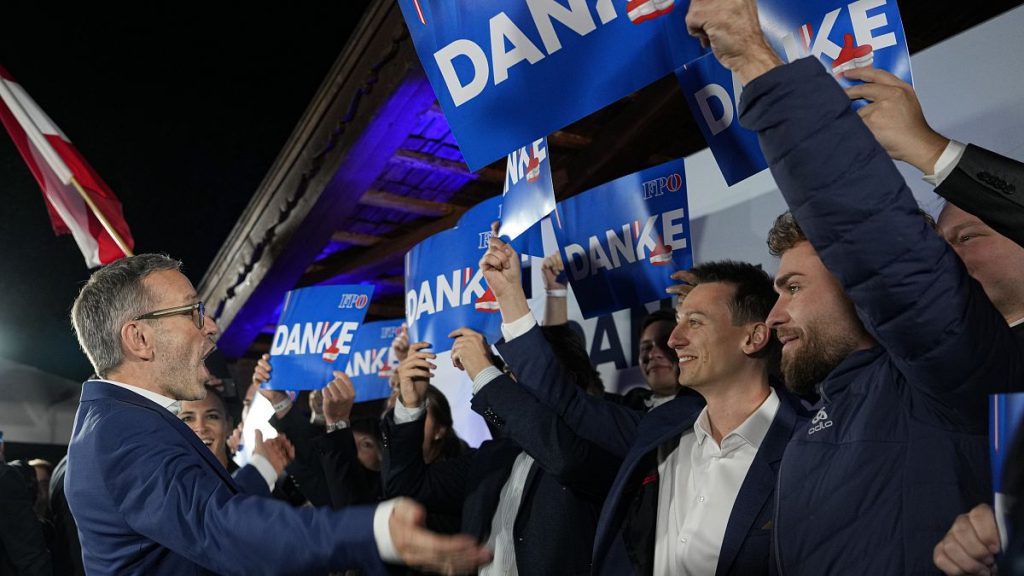The Freedom Party in Austria has won the parliamentary election, marking the first victory for a far-right party in the country since World War II. The party secured 29.2% of the vote, pushing Chancellor Karl Nehammer’s Austrian People’s Party into second place with 26.5%, while the centre-left Social Democrats finished in third with 21%. The outgoing government, a coalition between Nehammer’s party and the Greens, lost its majority in parliament. Freedom Party leader Herbert Kickl celebrated the victory, calling it a “piece of history” and expressing his excitement for writing a new chapter in Austrian history together with his supporters.
However, in order to become the new leader of Austria, Kickl will need to form a coalition with other parties to command a parliamentary majority. Despite being open to negotiations, his rivals including Nehammer and Social Democrats leader Andreas Babler have indicated that they will not work with the far-right party due to ideological differences. Nehammer, in a statement in Vienna, criticized Kickl for promoting conspiracy theories and accused him of being unfit to run the state sensibly. The far-right’s success in the election has been attributed to public frustration over high inflation, the war in Ukraine, the COVID-19 pandemic, and concerns about migration.
The Freedom Party’s election program, titled “Fortress Austria,” includes calls for the “remigration of uninvited foreigners” and achieving a more “homogeneous” nation by tightly controlling borders and suspending the right to asylum through emergency laws. The party also advocates for ending sanctions against Russia, criticizes Western military aid to Ukraine, and wants to withdraw from the European Sky Shield Initiative, a missile defense project initiated by Germany. Kickl has also been vocal about his criticisms towards the “elites” in Brussels and has called for some powers to be brought back from the European Union to Austria.
The victory of the Freedom Party has sparked protests outside the parliament building in Vienna, with demonstrators holding placards denouncing Kickl as a Nazi. Despite the backlash, the final official results are expected to confirm the Freedom Party’s win, as a small number of remaining postal ballots are unlikely to substantially change the outcome. The election results represent a significant shift in Austrian politics, with the far-right party emerging as a major player in the country’s political landscape. The future coalition negotiations will be crucial in determining the direction Austria will take under the leadership of the Freedom Party.


